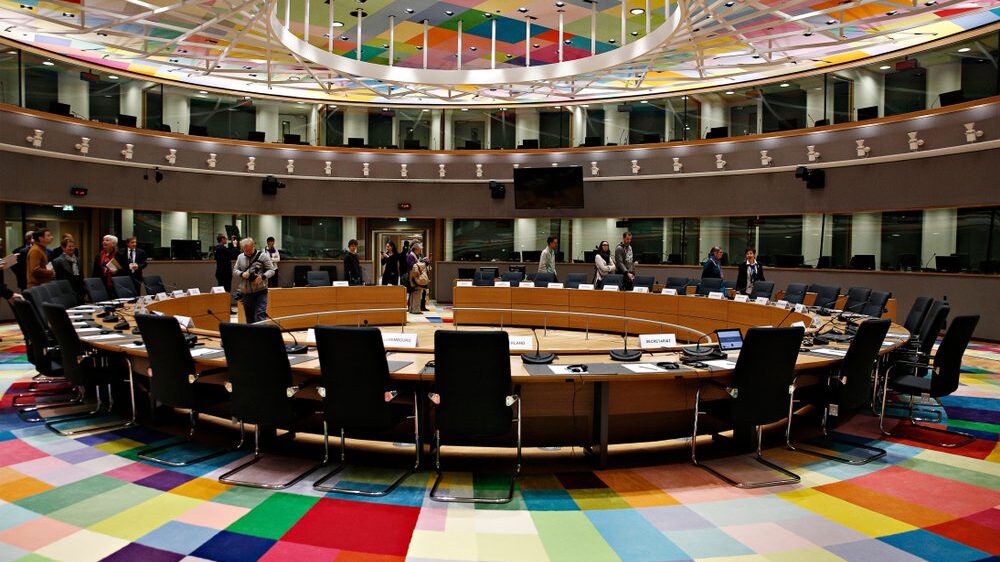
Plenary room, European Council building, Brussels, Belgium.
Photo: Alexandros Michailidis / Shutterstock.com
Three Chinese companies accused of funnelling European military hardware to Russia were slapped with sanctions by the EU on Wednesday, June 21st. This is the first time Beijing has been directly hit by sanctions related to the Ukraine war.
The decision by a meeting of European ambassadors has been taken as a small diplomatic victory for China after Brussels scaled back initial plans to sanction eight Chinese companies accused of helping the Russian army in Ukraine.
The South China Morning Post described that the Chinese representative to the EU, Fu Cong, had negotiated the deal to reduce the number of sanctioned Chinese companies as a test of good faith regarding China’s future actions in the war. Chinese officials had complained that the EU had not provided sufficient evidence to justify the sanctions.
Fu Cong in an interview this week noted the disunity among EU nations saying that it appeared from China’s perspective that certain member states were being dragged along into antagonism towards China against their will. The Chinese companies primarily specialise in microchip technology, and experts warn that Europe is losing an arms race to control the global supply of semiconductors.
Greece and Hungary are understood to have been the primary voices of dissent at the European Council objecting to the sanctions against China. Ukraine yesterday suspended the trading licences for multiple Greek shipping companies alleged to have been helping Russia circumvent Western sanctions.
The announcement was made as part of the 11th round of sanctions against Russia made public by the European Council this week. These sanctions also target third-party countries such as China, the UAE, and Uzbekistan, which the EU blames for leaking European technology to Russia.
The past year has seen the emergence of a blossoming industry of ‘sanction busting’ by third-party countries that bypass sanctions by acting as an intermediary and selling Western technology to Russia, which security analysts say is undermining the effort to isolate Moscow.
Among the sanctions announced Wednesday was a new mechanism to sanction entire countries accused of assisting Russia, something diplomatic sources said would be used as a last resort. The Council also issued restrictions against 71 Russians believed to be connected to the trafficking of children out of Ukraine.
The EU has been ramping up strategic protections against China in recent months as the Commission launched a new programme to regulate the flow of Chinese investment into Europe and protect vital trade secrets from Chinese espionage.
The decision could be a precursor to a long-envisioned EU-China split as the United States lobbies Europe to begin to disengage from the Chinese economy contrary to the wishes of certain European leaders such as France and Hungary.
In a statement to The European Conservative, a spokesman for the European Council said that the sanctions would indeed formally be ratified Thursday after ambassadors concluded their talks. The spokesman was not in a position to reveal which companies had been sanctioned.
